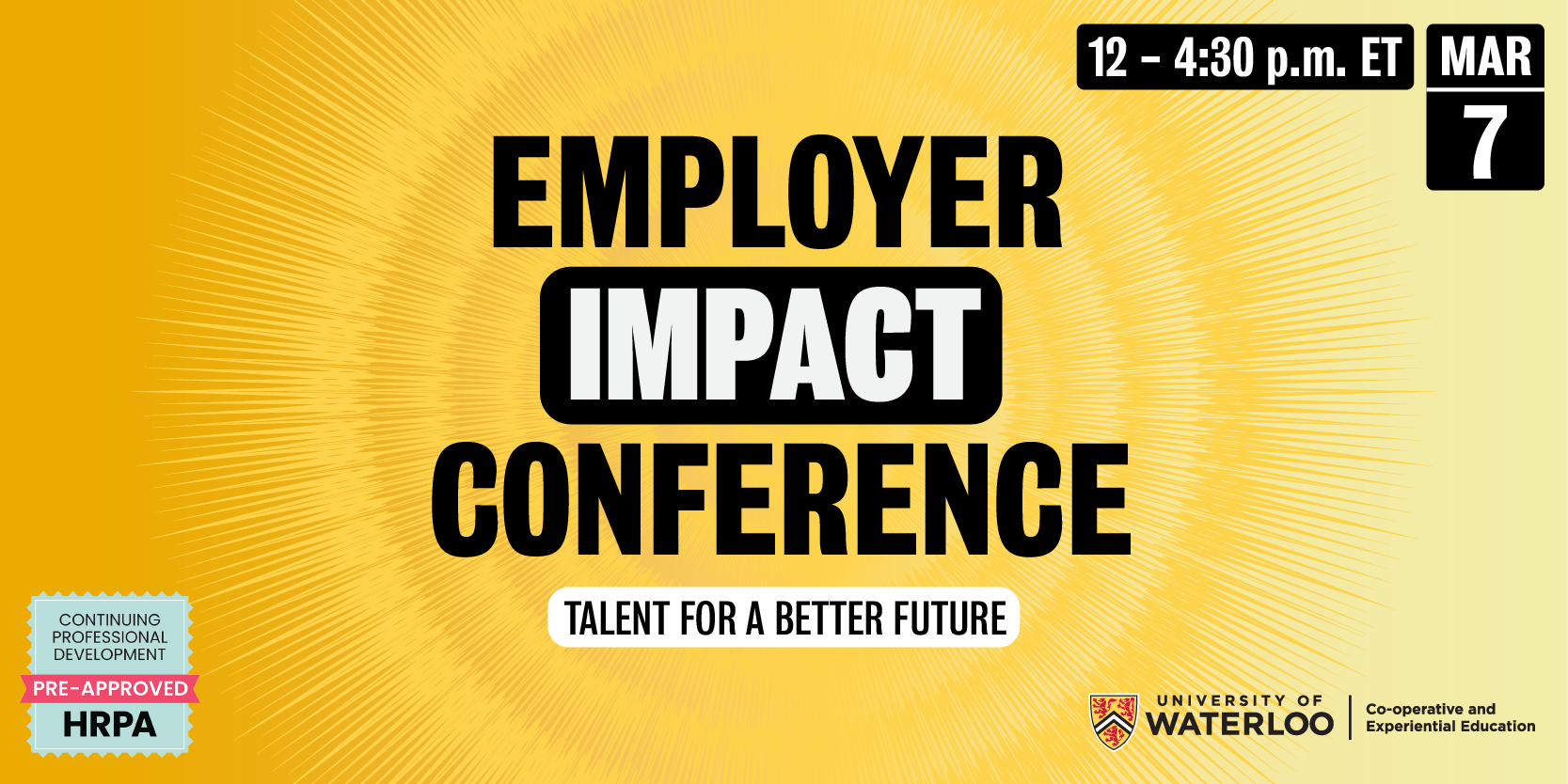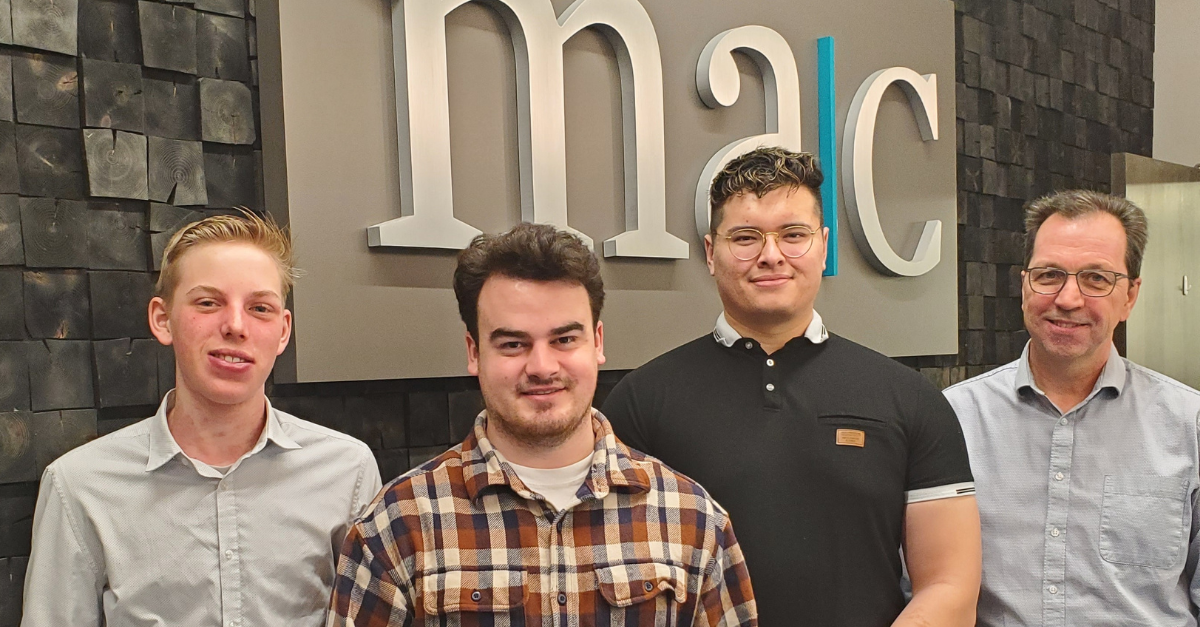Join the conversation...
@HireWaterloo on Twitter
Looking for bright, innovative and skilled talent? You're in the right place! Waterloo co-op students are available for four or eight month work terms to help with large projects, daily tasks and everything in between. With more than 26,000 students from 120+ programs available to hire, we’re here to help you find the talent you need.
Our students combine top notch academic learning with work term experiences to bring you tech-savvy solutions, diverse perspectives and the ability to connect your business to the next generation mindset.
Join more than 8,000 other employers who have tapped into the value of co-op students from Waterloo. Register now and post a job!
 1) Register and postAffordable way to fill your talent needs
1) Register and postAffordable way to fill your talent needsAccess 25,000+ students available for full-time positions
 2) Interview and hireTalent from 120+ accredited programs
2) Interview and hireTalent from 120+ accredited programsHire a student for 12 to 16 weeks.
 3) RepeatStudents are available year round
3) RepeatStudents are available year roundEasily repost your job for the next work term on WaterlooWorks
 #1 for hands on experiential learning
#1 for hands on experiential learningAs Canada's leader in experiential learning, our students are equipped with the academic and technical skills needed for the workplace (Maclean's Student Voices Survey 2022).
 29 years being rankedas Canada's most innovative university
29 years being rankedas Canada's most innovative universityHiring our co-op students connects you with top talent from Canada’s most innovative university (Maclean’s Magazine).
 International award winnerfor employer-student connections
International award winnerfor employer-student connectionsWe are internationally recognized as the best institution in the world in helping organizations leverage student talent (QS Reimagine Education Awards 2023).
Hear about the co-op experience from Toyota
Hiring from outside of Canada and the U.S.? Sign up to receive co-op hiring information for international employers.

Waterloo’s Employer Impact Conference highlights insights on talent trends for a better future.
By: Namish Modi (he/him)

By: Micaela Kelly (she/her)
Gen Z is leading the adoption of artificial intelligence (AI) in their everyday lives. Yet many businesses in Canada continue to shy away from the technology.

The accounting firm hires eight to ten students each year to help clients with their accounting and financial needs.

Tired of looking through dozens (or more) candidate resumes and still not finding what you need? We have the solution – hire emerging talent, like co-op students. Get ahead of the curve and gain insights on recruiting this next generation of talent. Join one, or all three of our free information sessions to get started.

Tired of looking through dozens (or more) candidate resumes and still not finding what you need? We have the solution – hire emerging talent, like co-op students. Get ahead of the curve and gain insights on recruiting this next generation of talent. Join one, or all three of our free information sessions to get started.

Tired of looking through dozens (or more) candidate resumes and still not finding what you need? We have the solution – hire emerging talent, like co-op students. Get ahead of the curve and gain insights on recruiting this next generation of talent. Join one, or all three of our free information sessions to get started.
Join the conversation...
@HireWaterloo on Twitter
The University of Waterloo acknowledges that much of our work takes place on the traditional territory of the Neutral, Anishinaabeg and Haudenosaunee peoples. Our main campus is situated on the Haldimand Tract, the land granted to the Six Nations that includes six miles on each side of the Grand River. Our active work toward reconciliation takes place across our campuses through research, learning, teaching, and community building, and is co-ordinated within the Office of Indigenous Relations.